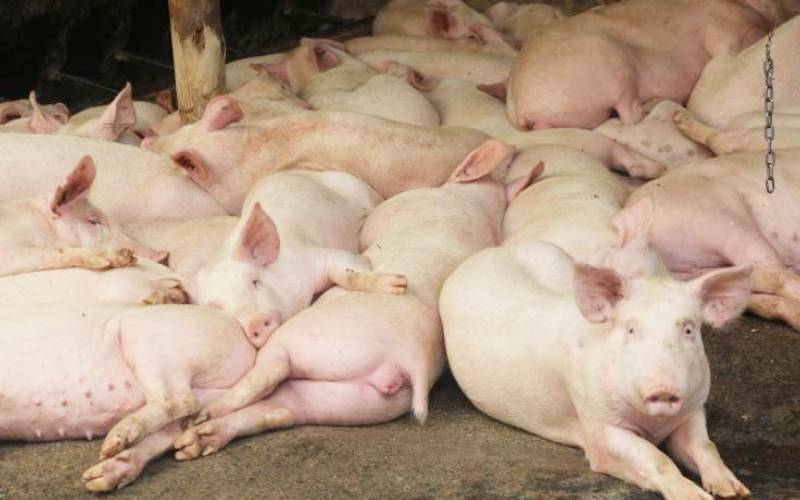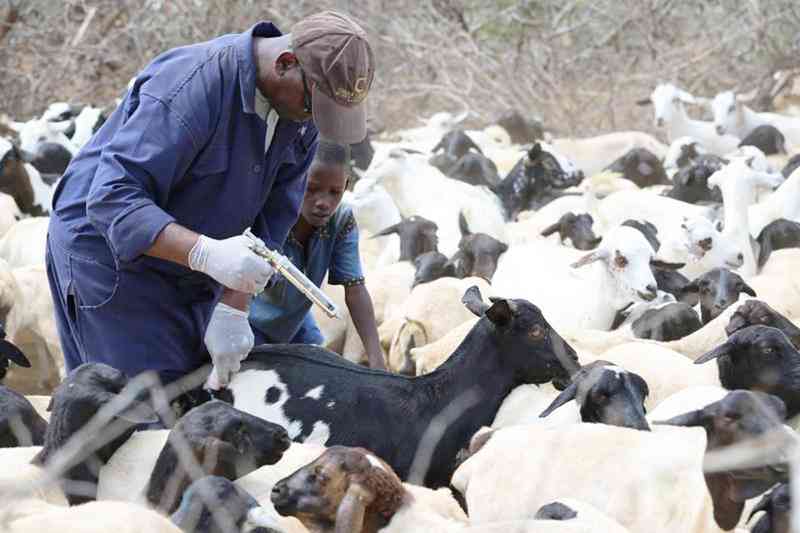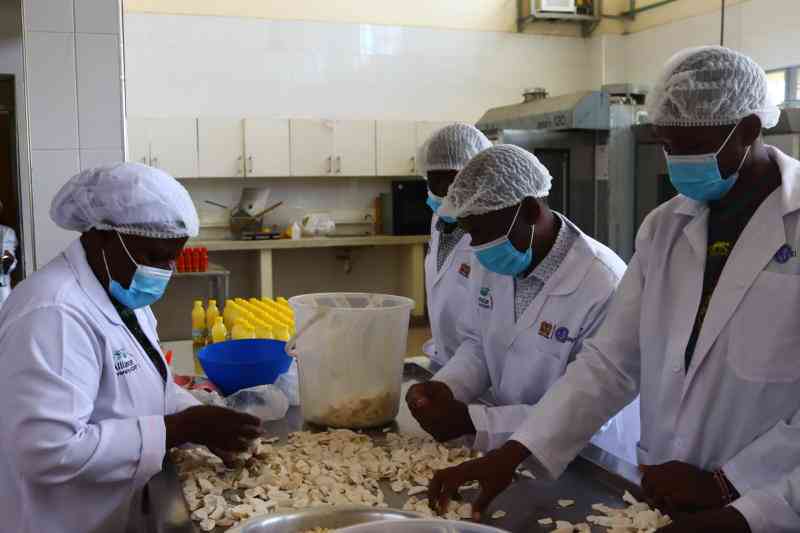
As the country struggles to contain the Covid-19 pandemic, which is believed to have come from animals, there are fears that the next pandemic could come from farm animals.
This is due to the manner in which these farm animals are handled, especially the use of antibiotics. A public poll released by World Animal Protection shows that 83 per cent of the people surveyed across 15 countries including Kenya are concerned that the next pandemic could originate from farm animals.
The report was done to understand people’s knowledge and attitudes towards antibiotic use, antimicrobial resistance (AMR) and pandemic risk from farm animals.
The poll also shows that 88 per cent of the respondents were concerned about the possibility of antibiotic resistant organism (Superbugs) coming from farm animals due to overuse of antibiotics in farm animals.
The report was unveiled even as the world celebrated the 75th World Food Day whose 2020 theme is Grow, Nourish and Sustain.
“We decided to release the poll results during the 75th World Food Day celebrations whose theme is Grow, Nourish, Sustain, Together because food is the essence of life and preserving access to safe and nutritious food will continue to be an essential part of the response to the ongoing Covid-19 pandemic,” explained Dr. Victor Yamo, the Farming Campaigns Manager at World Animal Protection.
The study also painted a gloomy picture of the widespread lack of knowledge on the use of antibiotics in farm animals, with close to 82 per cent of the respondents under-estimating the amount of the world’s antibiotics that are used on farm animals.
Yet, almost three-quarters of the world’s antibiotics are used in intensively farmed animals where the antibiotics are used to prop-up low-welfare practices such as the raising of fast-growing meat chickens and routine mutilation of piglets.
These animals are all housed in stressful, cramped conditions that provide the perfect breeding ground for the spread of infection and emergence of disease.
Dr. Yamo reiterates that in a moment like this when all efforts are geared towards the Covid-19 recovery journey, it is more important than ever to recognise the need to be careful on what we consume, especially animal products from intensive farming systems.
He warns: “We cannot ignore the contribution that the overuse of antibiotics in farm animals is having on the rise in antibiotic resistance. It is a ticking time bomb that could make the current public health crisis even worse if antibiotics are ineffective in treating secondary infections.”
According to the study, concerns are being driven by personal reasons, for example, 70 per cent of the respondents feared the adverse effects of ‘Superbugs’ to their health while 66 per cent were concerned with the impact of the superbugs contaminating meat.
The poll also showed that 71 per cent of people interviewed think that producers need to do more to manage the rise in antibiotic resistance in farm animals compared to 69 per cent who believe government needs to do more.
Over 82 per cent of the respondents believe that producers should stop using antibiotics for growth promotion although 85 per cent supported the use of antibiotics to treat sick farm animals.
Dr Yamo shares that there is a need for African governments to enact minimum farm animal welfare laws and standards.
“The governments also need to monitor and report on antibiotic use in farm animals and restrict the use of antibiotics in farm animals unless for treatment of sick animals,” he said, adding, the current Covid-19 pandemic should be a worldwide wake-up call for factory farming and its regulators.
He advised retailers and other food outlets to set the bar far higher to ensure the animals in their supply chains are treated well, and antibiotics are used responsibly in farming.
In another report also released by World Animal Protection in mid-September 2020 found that superbugs are emerging on farms from antibiotic overuse, and those superbugs are entering our food chain and our environment.
It is estimated that currently 700,000 people die each year from infections that cannot be treated by antimicrobials. The report warned that by 2050, the number of deaths is expected to rise to 10 million people each year.
The latest study was surveyed on more than 15,700 people and in in Kenya, Australia, Brazil, Canada, Denmark, India, Indonesia, Mexico, Netherlands, New Zealand, Spain, Sweden, Thailand, United Kingdom, and United States.
Want to get latest farming tips and videos?
Join Us
 The Standard Group Plc is a multi-media organization
with investments in media platforms spanning newspaper print operations,
television, radio broadcasting, digital and online services. The Standard Group
is recognized as a leading multi-media house in Kenya with a key influence in
matters of national and international interest.
The Standard Group Plc is a multi-media organization
with investments in media platforms spanning newspaper print operations,
television, radio broadcasting, digital and online services. The Standard Group
is recognized as a leading multi-media house in Kenya with a key influence in
matters of national and international interest.
 The Standard Group Plc is a multi-media organization
with investments in media platforms spanning newspaper print operations,
television, radio broadcasting, digital and online services. The Standard Group
is recognized as a leading multi-media house in Kenya with a key influence in
matters of national and international interest.
The Standard Group Plc is a multi-media organization
with investments in media platforms spanning newspaper print operations,
television, radio broadcasting, digital and online services. The Standard Group
is recognized as a leading multi-media house in Kenya with a key influence in
matters of national and international interest.







